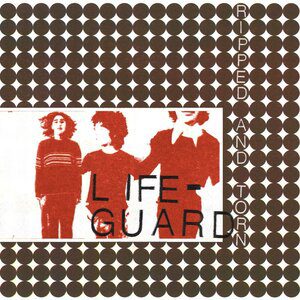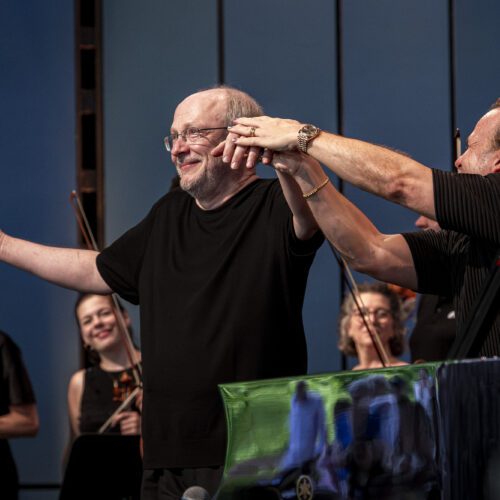From the introductory growl that Matthías Tryggvi Haraldsson emits without warning, followed by martial rhythms that are no laughing matter, it’s clear that Hatari is aptly named: it means “hateful” in Icelandic. This bellicose aspect catches one’s attention immediately. However, the band gradually reveals its complexity.
The lascivious voice and presence of the band’s other singer, Klemens Nikulásson Hannigan, blurs this initial perception. More restrained than Haraldsson’s, whose approach increases the aggression tenfold, Hannigan’s voice brings sensuality to this battle-ready bomb. In addition to the drummer, the group also includes three dancers with robotic expression and erotic choreography.
Their dazzling moves extend far beyond their BDSM aesthetic, into bold political stances. They presented the track “Hatrið mun sigra” (“Hate will triumph”), which was released the same year and which is featured in an extended version on this album, at Eurovision 2019 in Tel Aviv, and they waved the Palestinian flag during the scoring. During a concert in Moscow last November, one of the three dancers and choreographers, Andrean Sigurgeirsson, appeared on stage wearing huge rainbow-coloured wings in support of the LGBTQ community.
Added to this already motley cocktail are four collaborative tracks that are odd at first listen, but all ultimately successful. “Klefi/Samed”, with queer Palestinian artist Bashar Murad, was first released a few days after their performance at Eurovision. On “Hlauptu”, with the Icelandic female rap trio CYBER, the magic still works, between the more swaying beats, Haraldsson’s grunts and Hannigan’s lyrical leaps. The same goes for the disturbing “Helvíti” with the rapper Svarti Laxness, and then for the ample and captivating “Niðurlút” with R&B singer GDRN. Not to forget “Spectavisti me mori”, a solo interlude masterfully conducted by violinist Pétur Björnsson.
With its arch and eclectic theatricality, Neyslutrans is one of this year’s must-have albums.























